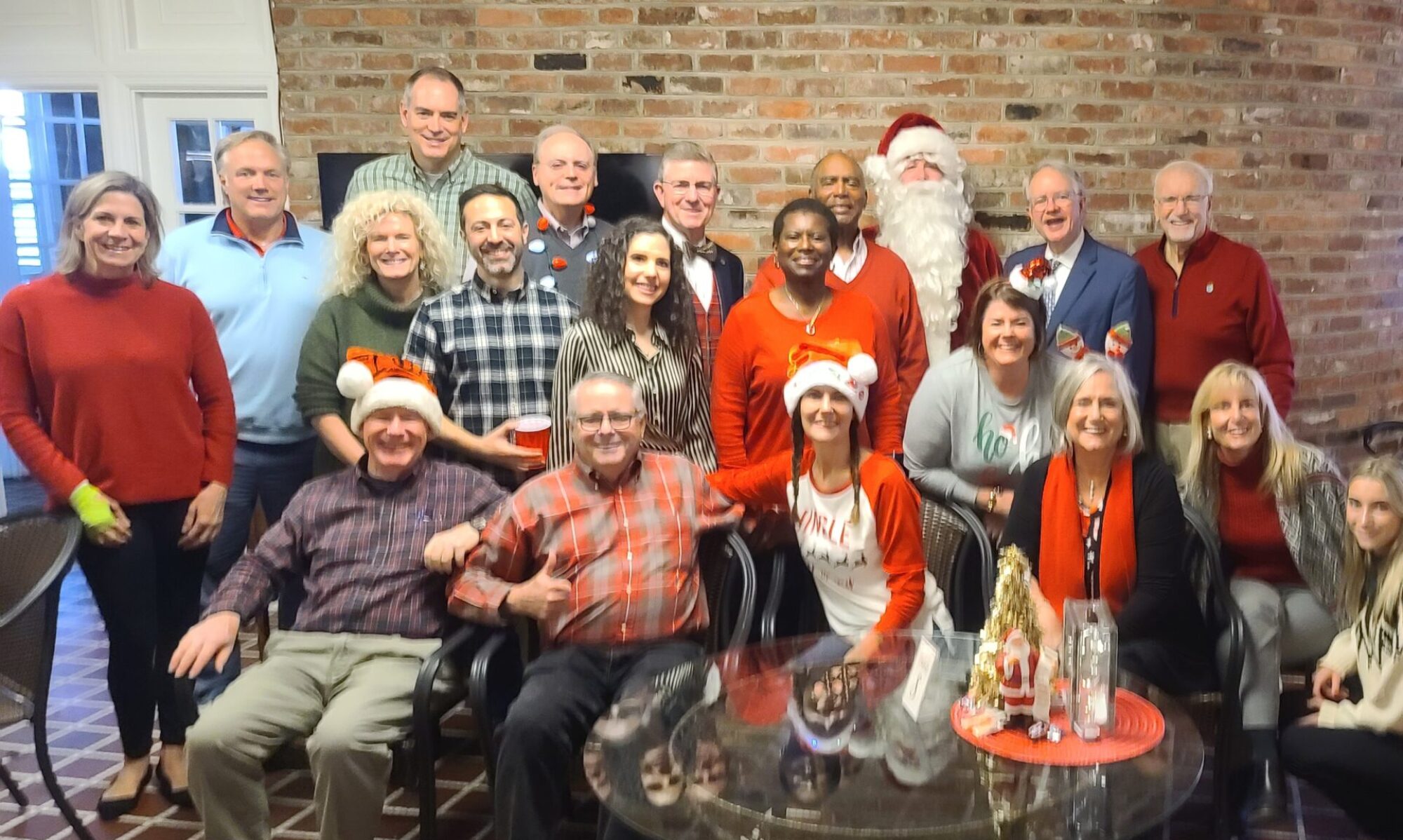Charleston Navy Week
April 13, 2010: Today’s speaker, Rear Admiral John Goodwin began his presentation with a little comic relief as he gave newly engaged Ken Caldwell the same advice his father, a Navy Chief in World War Two, gave him years ago: “Marriage is an institution. Are you sure you want to live in an institution?!” As laughter ensued, Goodwin was sure to credit his “Mrs. Always Right” with his success in life and naval achievements.
Goodwin’s naval achievements began upon his graduation from the University of South Carolina and commission in May of 1975. He was designated a naval aviator in February 1977. Goodwin’s naval career spans from a flight instructor in the TA-4j Skyhawk to flying the FA-18 for the Strike Fighter Squadron 25. He jokingly compared the aircrafts as a Volkswagen to a Corvette.
More recently, following Naval Nuclear Propulsion training, Goodwin served as executive officer of USS Carl Vinson (CVN 70) until April 1998. He assumed command of USS Rainier (AOE 7) in June 1998. Goodwin assumed command of the Pre-Commissioning Unit Ronald Reagan (CVN 76) and became the first commanding officer, USS Ronald Reagan (CVN 76) in July 2003. His most recent assignment was Commander, Naval Air Force Atlantic.
His decorations include the Defense Superior Service Medal, Legion of Merit, Meritorious Service Medal, Air Medal, Navy Commendation Medal, Navy Achievement Medal, as well as numerous unit commendations and awards.
During his Rotary presentation, Goodwin answered the question “what is the Navy doing and why does it matter?” in three parts: Full Combat, Humanitarian Relief and Piracy. He discussed the Navy’s role in the Middle East and how their commitment to fighting terrorism is evident in the number of sailors on the ground versus at sea. The commitment is focused on “playing the away game and not the home game;” a dedication clearly focused after September 11th.
Goodwin discussed the Navy’s recent humanitarian relief efforts in Haiti and Indonesia and their commitment to providing fresh water. While he applauded Water Mission International’s local efforts, Goodwin noted the Navy’s impressive ability to provide 400,000 gallons of fresh water a day.
During Goodwin’s remarks on piracy and their efforts to disrupt commerce, he emphasized the important role the ocean plays in our world and its vast size, covering three-fourths of the world. In order to protect our waters and defeat modern day pirates, Goodwin explained that the Navy is part of maritime strategy and national defense.
In addition to Goodwin’s three-part Navy review, he discussed the events of the upcoming Charleston Navy Week:
– The Blue Angels will fly over Charleston Harbor on Saturday and Sunday.
– Divers will demonstrate bomb dismantling in a dive tank at the Aquarium.
– Sailors will volunteer time at Habitat for Humanity as part of their service project.
Goodwin concluded his presentation remarking on his great enthusiasm for this generation of armed service men and women and his belief that the “future of this country in is good hands.” He closed with “It’s an honor to be in South Carolina and in this country. God bless you and God bless America.”
Submitted by: Teal Van Saun, Keyway Committee

